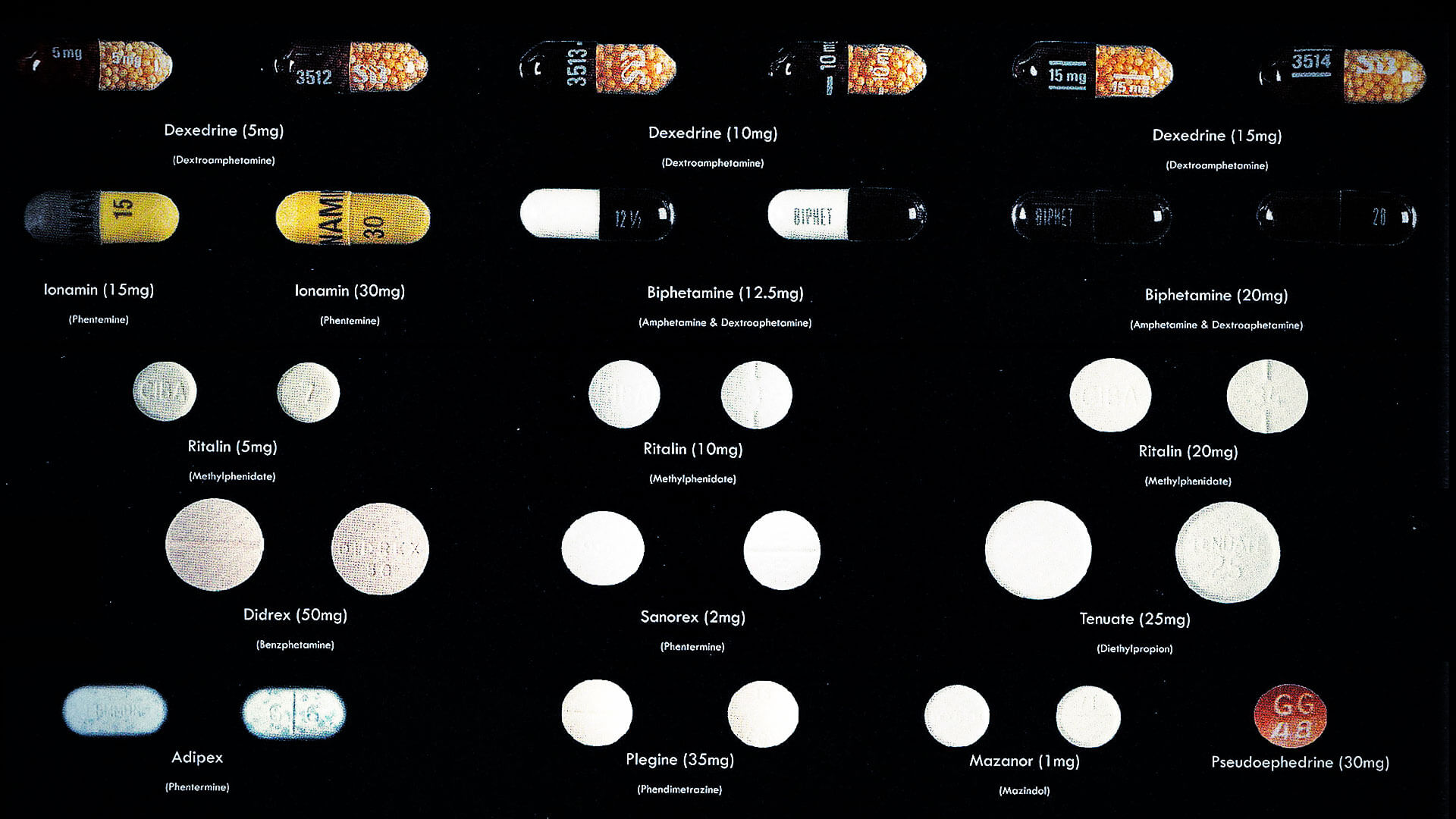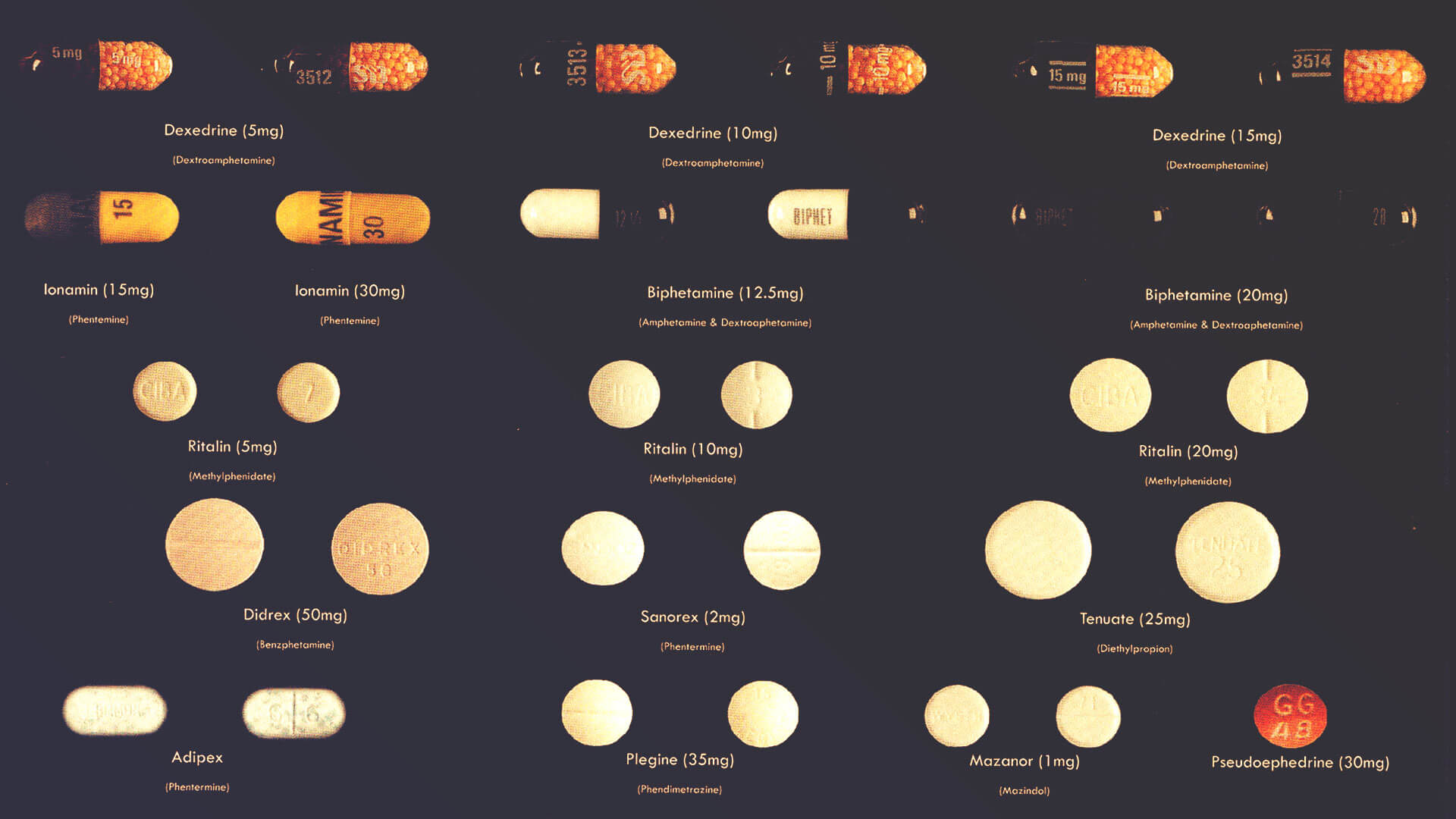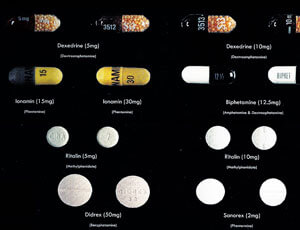- Over-the-Counter Drugs
- Prescription Drugs
Stimulants are a controlled substance – DEA Schedule I to Schedule V
What are stimulants?
Stimulants are diverted from legitimate channels and used illegally. They are also used to manufacture illegal substances. Prescription stimulants include Adderall, Dexedrine, methylphenidate, Concerta and Ritalin. Diet aids such as Didre, Bontril, Reludin, Fastin, Adipex, Ionomin and Meridia are also considered stimulants.
Many stimulants are legally-prescribed to treat conditions including attention-deficit hyperactivity disorder, narcolepsy and some forms of depression.
Common names include Bennies, Black Beauties, Cat, Crank, Ice, R-Ball, Skippy, Snow, Speed, Uppers and Vitamin R.
How are stimulants abused?
Stimulants are generally taken orally or injected.
How do stimulants affect a person?
All stimulants work by increasing dopamine levels in the brain. Dopamine is a neurotransmitter associated with pleasure, movement and attention. When taken in ways other than those prescribed, prescription stimulants can increase dopamine in a rapid and highly-amplified way which, in turn, can disrupt normal communication between brain cells.
Stimulants produce a feeling of exhilaration, enhance self-esteem, improve mental and physical performance, increase activity, reduce appetite and extend wakefulness.
What are the health effects/risks of using stimulants?
Chronic, high dosages are associated with agitation, hostility, panic, aggression, paranoia, auditory/visual hallucinations and suicidal/homicidal tendencies. Effects of large doses include dizziness, tremors, headache, flushed skin, chest pain with palpitations, excessive sweating and abdominal cramps/vomiting.
Stimulants bypass all of the body’s normal energy-creating capabilities and make a person feel alert and powerful. Fatigue and hunger also go away, so the stimulant user does not eat or rest. Violent and erratic behavior is frequently seen among chronic abusers of stimulants.
Tolerance to stimulants can develop rapidly, leading to frequent psychological dependence. With more potent stimulants, depression, anxiety, drug craving and extreme fatigue commonly occur when use stops abruptly.






